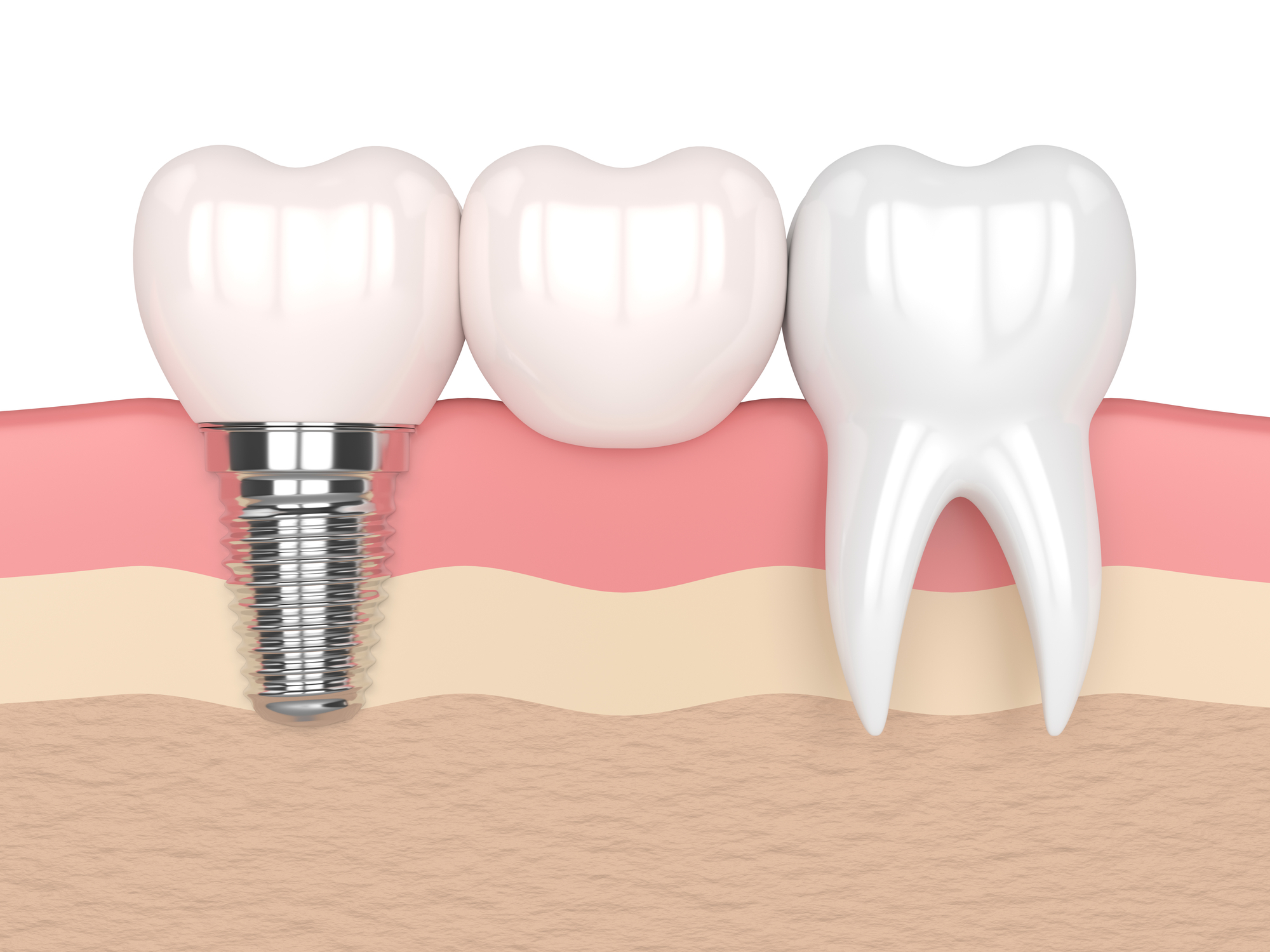Optimal oral health and function greatly depends on having all of your teeth intact. A missing or damaged tooth should be replaced as soon as possible. Patients who need teeth replaced will often wonder how the replacement will look, how much the procedure is going to cost, and how much it is going to hurt.
One of the most advanced materials used in dental implants these days is zirconia. These implants are especially beneficial for patients looking for a metal-free alternative to titanium dental implants.
Zirconia Implants
Zirconium is a metal that through a process of oxidation becomes a ceramic material. Also through oxidation, zirconia combines the best elements of different materials. Namely, the strength of metal and the heat-resistance of ceramic. It is increasingly being recognized as an ideal material for dental implants.
Zirconia’s benefits are numerous:
- Aesthetics. Zirconia’s naturally white color makes it easy to match a patient’s natural tooth color almost identically. It is also a non-corrosive material, which makes it resistant to discoloration over time.
- Strength. Zirconia is an extremely durable material. It also keeps its structural integrity remarkably well when pressure is exerted on it. It can withstand bite pressure and the force of human jaw muscles.
- Zirconia integrates with the bone. The success of dental implant surgery hinges on the implant material’s ability to fuse with the patient’s jawbone, and zirconia has shown a high success rate of bone integration.
- Quicker healing. Zirconia is not a metal, so it does not act as a heat conductor. This has a better effect on gums, especially during the healing time.
- Anti-plaque qualities. Plaque builds up much less effectively on smooth surfaces. It usually does much better by holding on to crevices. Zirconia has a non-polar structure, which means plaque and other bacteria have a harder time adhering to it.
- Corrosion Resistant. Because zirconia is bioinert, it does not corrode. This gives zirconia a decided advantage over other materials, such as titanium, which has been shown to corrode in a wet environment.
- No metallic taste. Because of its anti-corrosion qualities, there is no taste to zirconia. With titanium, there is often a metallic taste the patient can taste after implantation. Zirconia, on the other hand, tastes like nothing.
- Hypoallergenic. Zirconia won’t trigger allergic reactions in the body, meaning side effects after surgery are minimized.
Are there any drawbacks to Zirconia?
While the benefits to Zirconia are numerous, there are some drawbacks to zirconia that are worth mentioning. These include:
- Lack of availability. All of its benefits notwithstanding, still not offered by many dentists because it isn’t as popular as using titanium. Be sure to check in your area for dentists that provide the material.
- Costs. The final cost will, of course, depend on the dentist that you choose, but prices for zirconia implants tend to be higher than other materials. Titanium abutments (the pieces that fit on top of the implant that serves as the base for the replacement tooth) cost about $180. The same abutment made from Zirconia would cost about $350.
Zirconia Implant Procedures Performed in Providence, RI
Dr. Sylvia Zannis and Dr. Robert Bouffard of Well Rooted Dentistry in Providence, RI, have extensive experience with dental implants made from zirconia. Call (401) 443-4007 or make an appointment online conveniently today to find out how they can show you the benefits of Zirconia implants.


